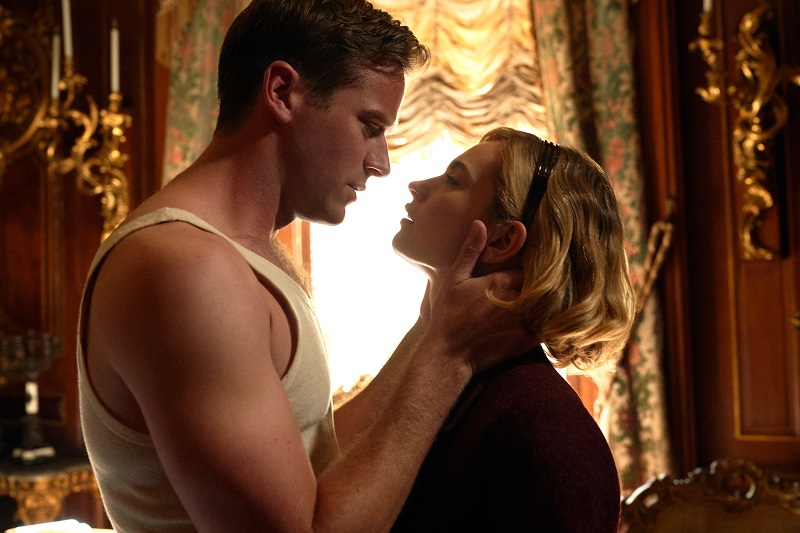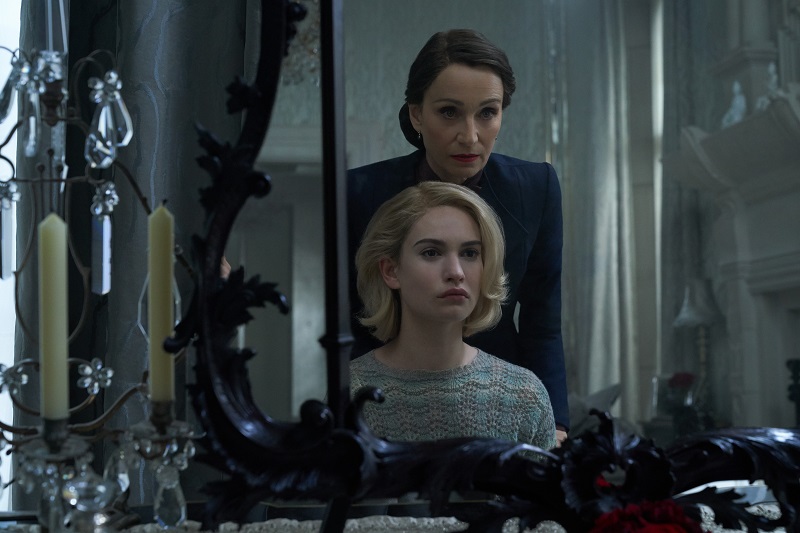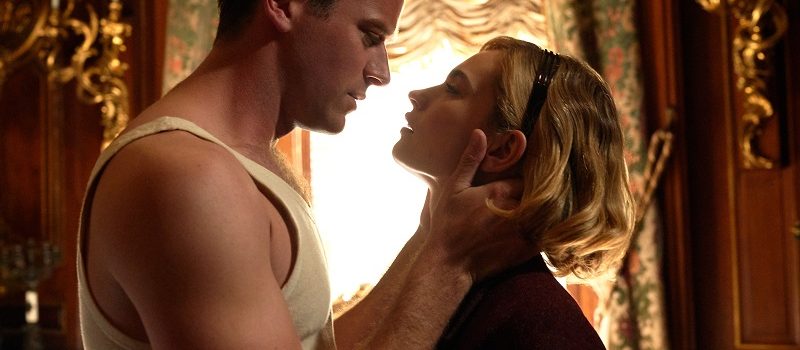When speaking about the 1940 Best Picture-winning Rebecca from Alfred Hitchcock and the idea of remaking what is considered a classic, director Ben Wheatley reported not being concerned about comparisons to the thrill master’s work. Now, the beloved book of the same moniker—author Daphne du Maurier’s treasured 1938 gothic tale—that is a whole different story. “I think the thing for me, the shadow that is across me and the thing I fear is the book,” Wheatley admitted. “It’s not Hitchcock, it’s the book.”

The Movie Mensch caught up with Wheatley for a roundtable interview with a few other outlets and were so struck by the confidence that the Free Fire filmmaker brought to the endeavor that might have had other helmers quaking in their shoes. After all, remaking a Best Picture is inviting trouble from those who adore the work to those who write about it. Redoing a Hitchcock film has always been an effort that has largely not gone too well, just ask Gus Van Sant how his Psycho remake went?
Rebecca chronicles a never-named (something from du Maurier’s book that remains in tack with Wheatley’s adaption) young woman (Lily James) who falls for a dashing widower, Maxim de Winter (Armie Hammer), while on holiday for work in Monte Carlo. After a whirlwind wedding and European honeymoon, the couple heads back to his English country seaside estate, Manderley, and reality sets in. That (sometimes) harsh real-world sensibility includes the fact that the title character is Maxim’s late wife, and her feel is everywhere. It is impossible to escape her presence, years after she went out for a sail and never returned.
That was my first question to Wheatley in our roundtable, how does one craft a character that permeates every ounce of a narrative, but never is seen or heard? “I think the most present way of [introducing Rebecca] was with the music,” he revealed.
“[It’s] almost that the feeling of her comes through the music in various levels within. So, it’s kind of like her theme is assembling itself across the movie. Also, in sound effects, in sound design, so a lot of the environmental stuff in Manderley—every door handle, every drawer that’s pulled out, they don’t have the sounds of the things that they are, they’re sounds of guns being cocked. It’s kind of the house itself seems to be subconsciously trying to tell the audience what’s happened and what the secret is of what’s happened with Rebecca.”
One of the more indelible characters from du Maurier’s novel (and all of its cinematic incarnations) is the woman in charge of keeping the estate humming, housekeeper Mrs. Danvers. Wheatley cast Oscar nominee Kristen Scott Thomas and she sinks her teeth into the role in the most beautifully mysterious and maddening ways. Whether she is helpful, or a hindrance is one of the story’s first mysteries and it is one that the filmmaker proudly saluted the author. “The whole thing about what du Maurier’s done is it’s not just a matter of tracking different characters and worrying about are they good, are they bad, you have to worry about yourself being good and bad because you’re kind of willing the couple to get away with murder,” Wheatley said. He compared it to a “moral kind of jiu-jitsu that du Maurier plays on the viewer.”
Wheatley may be alone in this sentiment, but he felt a kinship with Danvers that arose out of a deep dissection of the novel. “I felt very sympathetic to Danvers and I felt like she’s basically the kind of moral center of the film in a lot of ways. Even though Danvers does some heinous things and dangerous things, I think there’s moments in the movie that poke through where she’s literally telling you that she’s a witness for Rebecca, and someone needs to speak for her because no one’s speaking for her,” he said. “You can’t just go along with this idea of romance, that it’s okay to murder people for your love.”

That is an important point. As the story is told, one must consider the source of who’s narrative is being told and everything that they bring to that moment and the entire timeline of Rebecca. That is firmly the case with Danvers with her long history with the titular character. Also, when the “new” Mrs. de Winter reveals facts, they are uniquely hers and come with her own bias. “The film itself is not just a memory, it’s a memory of a dream and you’re being reported to by the second Mrs. de Winter. So, do you trust her? Do you trust Maxim de Winter’s reporting of what Rebecca was like? Because he’s the only person who was there when she died,” Wheatley said.
“I would put a big question mark over whether what he’s saying is true or not. Danvers is also quite slippery in that respect. Where is the truth there? And then the final person is probably du Maurier because she plays fast and loose with the facts across the story as well. So that’s kind of the way it’s built into the film.”
Back to that Hitchcockian elephant in the Rebecca room. The filmmaker makes a fantastic point about the legend’s Oscar-winning version in that it strayed from the book. Not because of storytelling license by the great storyteller, but because of the societal landscape that gripped the country and Hollywood when it was released in 1940.

“I think the main difference between is the Hays Code and the problems that they had with the original adaptation,” Wheatley reported. “Specifically, they could never show a character that committed a crime and then got away with the crime. They had to change the book. The Hitchcock adaptation does not have Maxim de Winter killing Rebecca, so she dies in a weird accident, which he doesn’t report for some reason. It completely changes the whole thing.”

